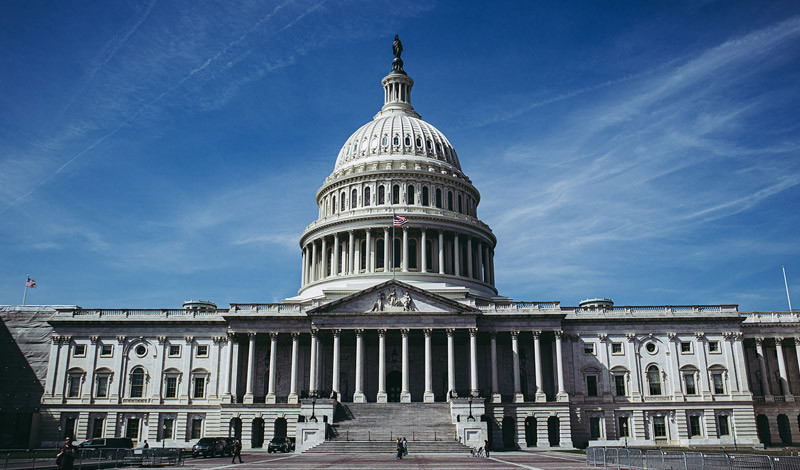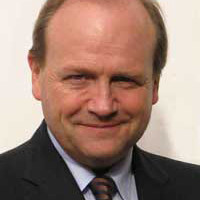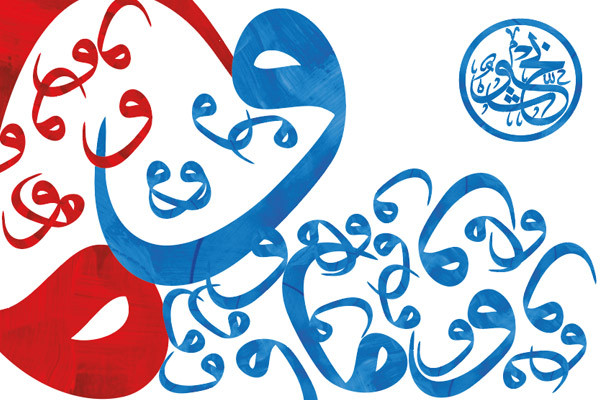GCC-US RELATIONS: A VIEW FROM WASHINGTON
While commentators on both sides of the Atlantic continue to express remorse and dismay towards the presidency of Donald Trump, the view from the Gulf states, evident at last week’s annual meeting of the National Council on US-Arab Relations (NCUSAR), struck a decidedly different tone.

- by Angus Taverner ,
- Thursday, 26th October, 2017
While commentators on both sides of the Atlantic continue to express remorse and dismay towards the presidency of Donald Trump, the view from the Gulf states, evident at last week’s annual meeting of the National Council on US-Arab Relations (NCUSAR), struck a decidedly different tone.
Introducing the present Commander US Central Command, General Joseph Votel, the UAE’s ambassador to the United States, HE Youssef al-Otaiba, took the opportunity to emphasise how much the UAE welcomed President Trump’s more assertive approach to Iran, outlined at last month’s UN General Assembly and then again in Mr Trumps’ suggestion that the US may withdraw from JCPOA – the international nuclear agreement with Iran. Mr al-Otaiba told delegates: “We welcome President Trump’s initiative to address the full range of threats from Iran. The US can count on the UAE to help counter the Iranian threat.”
HRH Prince Turki al-Faisal al-Saud also expressed his hope that: “President Trump will rectify the mistakes of the last two administrations.” But he also surprised many Americans in the audience by urging the US to reform its “broken political system”. He concluded his ‘tour d’horizon’ of Arab-US relations by suggesting that the region needs the United States to remain a “strong and stable beacon of progress”. He also insisted that despite competition from the rising powers of Asia, Saudi Arabia will remain a strong friend of the US so that together they can re-establish “peace and tranquility” across a region that “is in a state of turmoil as never before.”
Spending a few days in the US capital always provides a valuable opportunity to take the political pulse of the nation. Whether sensing first-hand the jingoistic enthusiasm for George W Bush’s ‘Axis of Evil’ speech in 2002, or the surging optimism that accompanied Barack Obama’s promise of hope and change, a visit to Washington always helps to gauge the political mood of the moment. In this context, it was noteworthy that, despite evident Gulf support for Donald Trump’s more muscular approach to the challenges posed by Iran, and his more overt opposition to Islamism and extremism, within ‘The Beltway’ there remains unhappiness and uncertainty with apparently chaotic management within the new administration, and its continuing flirtation with hardline, right-wing populism.
This begs the question whether Gulf support, particularly from Riyadh and Abu Dhabi, is borne merely out of political pragmatism or whether it reflects more closely, the innate political conservatism within the Gulf region.
Listening to the debates and discussions in the Ronald Reagan Conference Center last week, a number of themes continued to resonate and seemed to point to change in the nature of future of GCC-US relations. First, and perhaps most obviously, close relations between the US and its long-time Gulf allies remain important for all parties – at least for the foreseeable future. While Mr Trump’s approach to diplomacy in the region may veer more towards the transactional than the conceptual, it seems undeniable that for the United States, the Arabian Gulf remains a region of ‘vital interest’.
This vital interest continues to be based on several pillars. First, is the Gulf’s geographic position at the crossroads of Europe, Africa and Asia. Stability or instability in the region has strategic influence over all three continents, arguably evidenced by the still simmering immigration crisis in Europe; the rise of Islamic extremism around the Sahara; and Gulf participation in Asia’s economic outreach – most obviously China’s ambitions within its ‘One Belt One Road’ strategic plan.
More specifically, and despite its return to potential energy self-sufficiency, the US remains reliant on Gulf oil. 30% of the world’s traded oil continues to pass through the Strait of Hormuz – almost all in Omani waters – but with the looming challenge from Iran always present. More recently, the southern entrance to the Red Sea, the Bab al-Mandab strait, has similarly emerged of greater strategic importance for the US, largely because the Houthi uprising in Yemen has enabled Iran to extend its influence to the Western seaboard of the Arabian peninsula. Moreover, the Gulf states provide vital US military basing from which it continues to project power and influence into Asia and Africa, as well as across the Middle East. Bahrain is the base for the US 5th Fleet, while Qatar is not only home to the largest airbase in the region at al-Udeid, but is also the forward headquarters for US CENTCOM – directing US operations in Afghanistan and against Daesh and Al-Qaeda.
So, for the Trump administration the Gulf states continue to be regarded as a vital US interest, both economically and strategically. They are also understood, notwithstanding the continuing friction over Qatar, as a stable bloc within an unstable and uncertain region. The survival of Gulf leaderships through the turmoil of the Arab Spring together with long-standing US opposition towards Iran’s destabilising ambitions in the region, not least in Iraq and Syria, seems certain to ensure that the GCC will continue to enjoy strong US support throughout the lifetime of the Trump administration – and probably beyond.
However, after listening to speakers from both the Gulf and the US last week, it is also evident that a change in the relationship is at hand. Today, the Gulf states themselves are widely seen to be taking greater responsibility for their own strategic affairs. While understanding of so-called US guarantees remains widespread, it is also obvious that GCC leaders are no longer as confident of these as they once were. To that end, greater efforts are evident to take greater responsibility for regional defence, with the continuing operation in Yemen, with quiet US support, being the most prominent example.
This plays to Donald Trump’s desire to see US allies taking (and paying for) greater responsibility for their own security rather than the US bearing too great a burden as the ‘world’s policeman’. He remains sceptical of NATO and continues to press NATO member nations to meet the alliance’s 2 percent GDP commitment to expenditure on defence and security. The same is the case with the GCC; but here it seems that individual member nations are today much more willing to embrace so-called ‘burden-sharing’ than their European counterparts.
Perhaps the most intriguing aspect of the future of US-GCC relations is one that was barely discussed at last week’s NCUSAR gathering.
As ties between China and India, and the Gulf states continue to strengthen, there seems to be the very real possibility that members of the GCC will start to perceive relations with America as of diminishing importance. It is certainly apparent that the former imperialist tone of relations between Washington and Gulf capitals is changing. While President Trump evidently enjoys a less fraught relationship with Gulf leaderships than his predecessor, it also seems clear that perceived American failure in the region, both through its ill-starred invasion of Iraq and strategic equivocation in the face of the Arab Spring, has spawned determination to reduce Gulf dependency on the US. This is manifest in the emergence of strengthening Gulf ties across Asia, the growing demand for Gulf energy from Asia and Africa, and increasing strategic cohesion between the Gulf states and the countries around the Horn of Africa.
It may not be entirely outlandish to suggest that the time may be coming when the United States needs strong relations with the GCC, rather more than the Gulf needs America.

Angus Taverner
(Director Global Affairs Division) (former)

